Within hours, Indian farm protests turned from carnival to violent clashes
Some farm leaders bemoaned the violent turn protests took, saying it undermined their cause
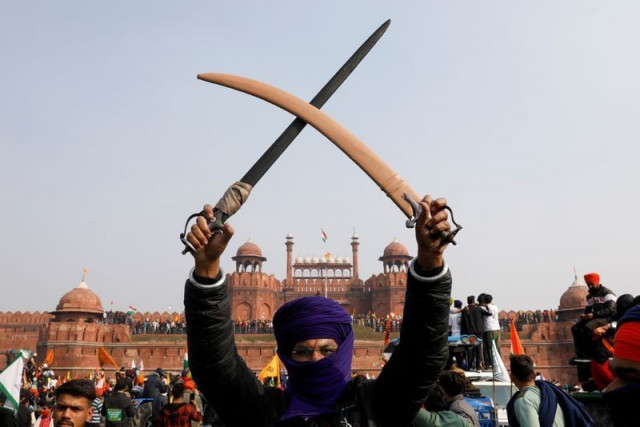
A line of tractors stood ready at dawn on Tuesday to move out of a protest site near New Delhi where thousands of farmers had been camping for the last two months and rallying against farm reforms they say will hurt them and benefit large private firms.
Within hours, the huge tractor procession that started in a carnival spirit had smashed through barricades, reached the heart of the city and turned violent.
It was an escalation in a standoff with protesters that poses a major challenge to the government of Prime Minister Narendra Modi, as it tries to contain the coronavirus pandemic and its economic impact.
Several hundred demonstrators breached the outer walls of Delhi’s Red Fort - one of its most recognisable landmarks - before raising flags from the ramparts and clashing with police.
Among those who reached the fort was Vikramjit Singh, who said farmers had not originally planned to storm the historic complex, a favourite tourist attraction where prime ministers deliver the annual Independence Day speech.
“Nobody had given a call to go to Red Fort,” said Singh, a farmer from Punjab’s Tarn Taran district. “It all happened suddenly.”
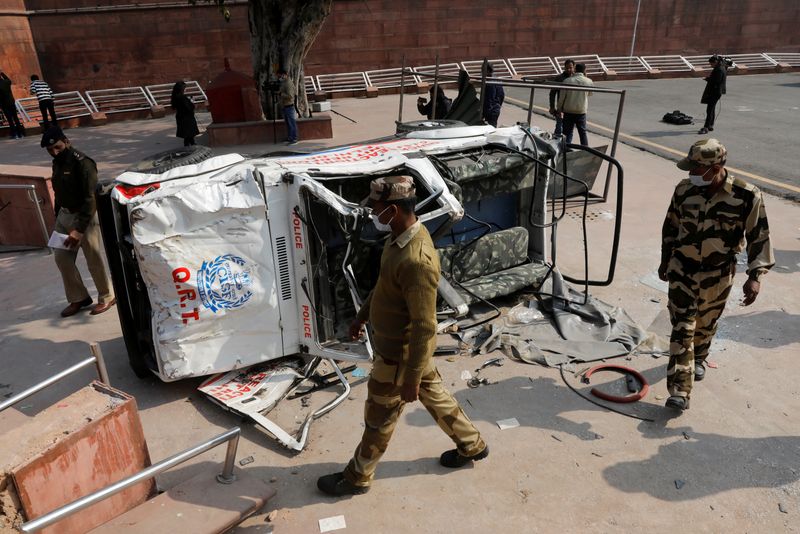
Policemen stand guard in front of the historic Red Fort after Tuesday's clashes between police and farmers, in the old quarters of Delhi, India, January 27, 2021. REUTERS
The events came after protest leaders held lengthy talks with police and promised a massive but peaceful rally along a pre-determined route.
Some farm leaders bemoaned the violent turn protests took, saying it undermined their cause.
“These incidents have only delayed our fight,” said farmer leader Darshan Pal.
Delhi Police Commissioner S.N. Shrivastava told reporters on Wednesday that police realised farmers may not follow the agreed route when “aggressive and militant elements” made provocative speeches the night before the tractor rally.
He added that 394 policemen were injured in clashes, leaving some in intensive care. His personnel ensured no protester had been killed, he said.
“The police has been very restrained,” he said.
Since the violence in the centre of the capital, police have reinforced their presence at major protest camps on the outskirts of the city and the Red Fort.
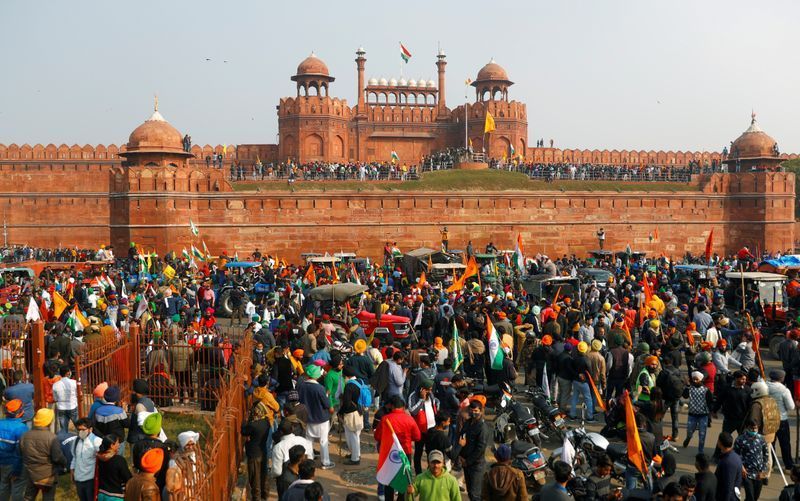
Photo: Reuters
Into the capital
A convoy of tractors drove out of the protest site at Singhu, a village outside the capital, at around 8 a.m., several hours ahead of schedule.
Read Security tight at India's historic Red Fort as farmers vow to continue protests
By noon, hundreds of protesters had dismantled a roadblock of concrete slabs, shipping containers and trucks.
After firing a few rounds of teargas, more than 100 policemen stood aside as the protesters passed through, according to Reuters reporters at the scene.
The crowds moved into Delhi’s centre, sometimes losing their way, and thousands of people eventually coalesced around the Red Fort that stands next to the old city.
For the first hour or so after the tractors began arriving, the mood was relaxed. A large contingent of policemen waited on the lawns in front of the 17th-century monument, two protesters said, looking on as the crowd steadily grew.
Even when protesters broke through two gates and climbed the ramparts, there was no sign of confrontation. In social media posts, heavily outnumbered policemen, some in riot gear, mingled with the crowds on the ramparts.
But the situation quickly turned violent. Video footage taken at around 3 p.m. showed protesters attacking policemen with sticks and tipping over a police jeep. One man was holding a sword. It was not clear what triggered the change.
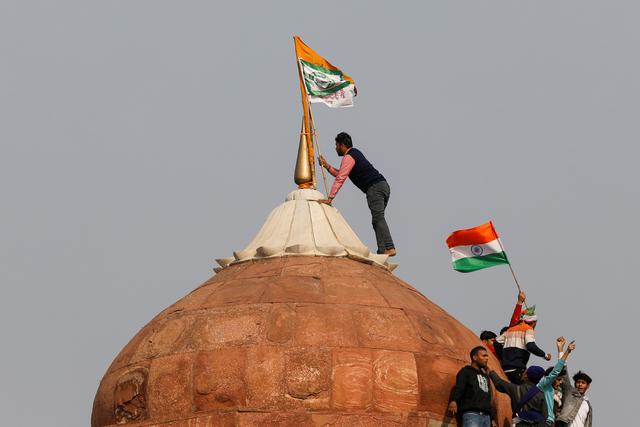
Photo: Reuters
The clashes lasted around 30 minutes, during which time protesters drove away most policemen from the area. The crowds gradually dissipated after that.
Balbir Singh Rajewal, another protest leader, said the demonstrations had been hijacked by a tiny minority.
“99.9% of the protesters were peaceful,” he told reporters.

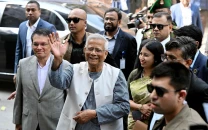

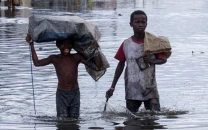














COMMENTS
Comments are moderated and generally will be posted if they are on-topic and not abusive.
For more information, please see our Comments FAQ